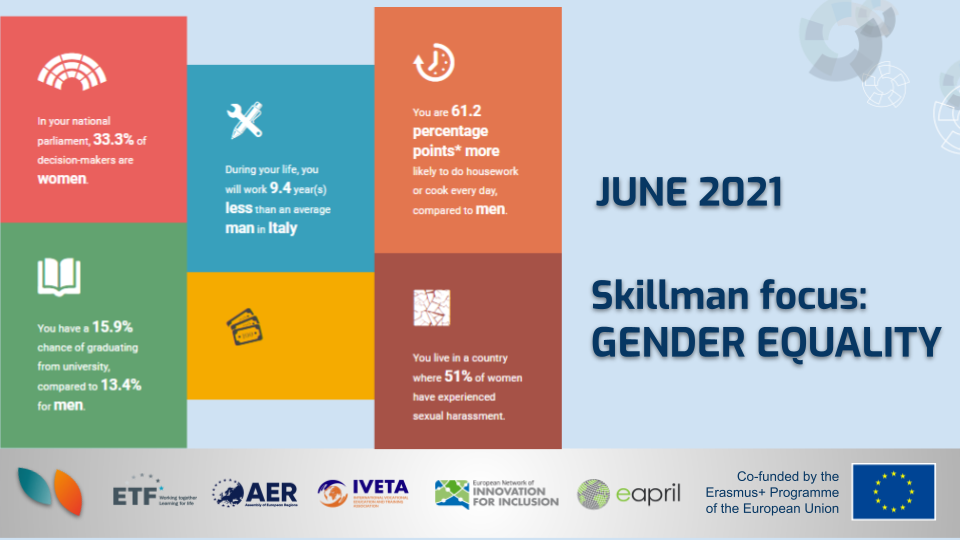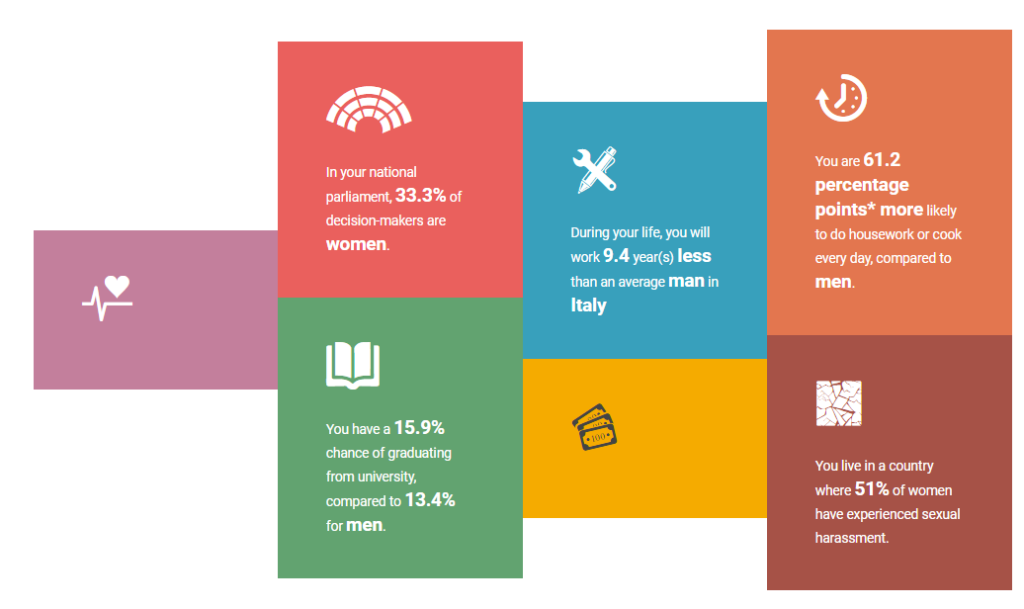
The Gender Equality Index is a tool that measures the progress of gender equality in the EU. The GEI was developed by the European Institute for Gender Equality (EIGE) to highlight areas that need improvement at different levels, ultimately supporting policymakers to design more effective gender equality measures.
The thematic focus of Index 2020 is on digitalization and how it affects the working lives of women and men in the EU. It examines the positive and negative consequences that the digital transformation of the world of work is bringing for gender equality.
Based on the GEI 2020 EU gain 67.9 out of 100 points, the EU has a long way to go before reaching gender equality. The Gender Equality Index score has increased by only 4.1 points since 2010 and 0.5 points since 2017. At this pace of progress – 1 point every 2 years – it will take more than 60 years to achieve gender equality in the EU. We need to speed up.
Best performance
The EU is closest to gender equality in the domain of health (88.0 points), especially in access to health services. The second-highest score is in the domain of money (80.6 points).
Most room for improvement
Gender inequalities are most pronounced in the domain of power (53.5 points), especially in economic decision-making. The second-lowest score is in the domain of knowledge (63.6 points). Gender segregation in tertiary education is the main obstacle.
A step backward
Since 2010, the EU’s score has decreased in the domain of time (– 0.6 points), which measures the distribution of housework and caring responsibilities. These inequalities could widen in the face of the COVID-19 pandemic.
The Gender-Equality Index game
Recently, the European Institute for Gender Equality (EIGE) has released a gender-equality index game. By entering the user’s gender and country of birth, one can see statistics and useful gender-related information. This tool is very interesting and can give a clear perception on each EU country’s gender policies. Are you aware of the gap between men and women in your country?
Find out more here: https://eige.europa.eu/gender-equality-index/game
